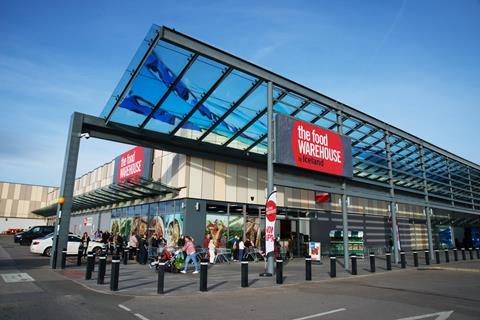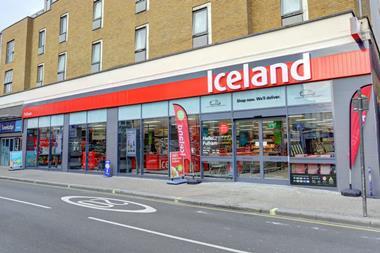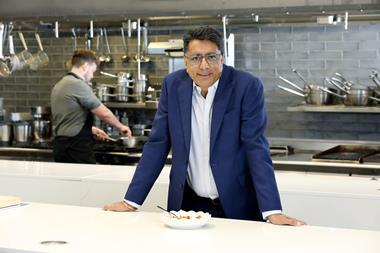
Iceland Foods executive chairman Richard Walker has hailed the supermarket’s “market-leading” performance, despite reports profits have stalled.
In an update to bondholders earlier this year, Iceland reported “sales growth ahead of the market” and “market-leading” volume growth. EBITDA had also increased, with Iceland cutting its debt to the “lowest level for a decade” Walker claimed, in a LinkedIn post summing up the presentation.
It followed a report by The Telegraph over the weekend, which claimed Iceland’s profits had slumped as it battled to stay competitive amid a burgeoning supermarket price war. Growth slowed from 24% last year, to 0.6% in the period to March 2025. Underlying profits were £317.6m, according to The Telegraph.
Iceland has a long-running policy of not publicly commenting on its bond results. However, CEO Tarsem Dhaliwal previously warned earlier this year that Iceland would struggle to keep a lid on inflation across its supply chain without passing on some costs to customers.
“We’ve always described ourselves as “long-term greedy”. That means backing our business not just for the next quarter, but the next 50 years,” Walker said following the bondholder update.
Iceland had invested £100m during the year upgrading its supply chain, delivery and digital infrastructure, bondholders were told. Around £70m of that went into opening a “game changing” new distribution centre in Warrington.
It also opened 20 new Food Warehouse stores, and refitted further Iceland stores, as part of an expanded rollout strategy aiming to double the Food Warehouse estate.
“People talk about the decline of the high street. For us, it’s fast becoming our (not so) secret weapon, giving us local reach and rapid fulfilment in a way others can’t match,” Walker said.
“We’re building a better business, not just a bigger one, and that’s what makes me proudest of all.”
The supermarket has been approached for comment.
Iceland’s volumes rose 5.3% during the last year as it doubled down on its long-running programme of multibuy promotions as rivals across the sector have invested in price cuts, per the Telegraph. However, this has not led to a significant uptick in volumes.
Iceland has invested in prices but food costs increase
Speaking to The Grocer in March, Dhaliwal conceded that Iceland would not be able to fully absorb cost increases across its supply chain.
“The reality is that we have to be conscious of the fact that our suppliers are going to be passing the costs on to us, literally straight away,” Dhaliwal told The Grocer in March.
“It’s going to be a market-driven thing, we’ve still got to remain competitive,” Dhaliwal said. “Consumers might end up with less items in their basket, still spending £10 but on less items.”
Dhaliwal predicted that food inflation would peak at around 4%, with the increased employment costs as a result of Rachel Reeves’ autumn budget being the main driver of inflation. Latest figures from the BRC for July show that it’s already running at 4%, fuelled by rises in the price of red meat and tea.
Read more: Iceland Foods CEO Tarsem Dhaliwal on keeping the business in the family
Iceland’s share of the grocery market has bobbed around 2.4%, where it sits currently, for the past decade. However, grocery sales, through The Food Warehouse and Iceland fascias, only portray part of the picture of the wider company’s performance.
A significant and growing portion of its income comes through its manufacturing business – Inspired Global Cuisine – and its export and partnerships arm. It also owns the Piccolino chain or Italian restaurants.



















No comments yet